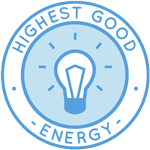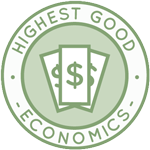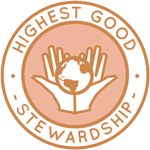We’re Creating a More Sustainable World – One Community Weekly Progress Update #483
We’re creating a more sustainable world through open source and free-shared sustainability resources covering food, energy, housing, education, for-profit and non-profit economic design, social architecture, fulfilled living, global stewardship practices, and more. Combining these, we will build teacher/demonstration hubs to make sustainability (and eco-communities) easy enough, affordable enough, and demonstrate the experience luxury-eco living as attractive enough to spread on its own.
- Here’s our project overview
- Here’s our world-change methodology
- Here’s how this becomes self-replicating
- Here’s how we are open source and free-sharing all the do-it-yourself designs

OUR MAIN OPEN SOURCE HUBS
Click on each icon to be taken to the corresponding Highest Good hub page.
One Community’s physical location will forward this movement as the first of many self-replicating teacher/demonstration communities, villages, and cities to be built around the world. This is the June 26th, 2022 edition (#483) of our weekly progress update detailing our team’s development and accomplishments.We’re Creating a More Sustainable World with our commitment to a better living quality for all people.
We’re Creating a More Sustainable World
One Community Progress Update #483
DONATE | COLLABORATE | HELP WITH LARGE-SCALE FUNDING
CLICK HERE IF YOU’D LIKE TO RECEIVE AN EMAIL EACH WEEK WHEN WE RELEASE A NEW UPDATE
YOU CAN ALSO JOIN US THROUGH SOCIAL MEDIA
ONE COMMUNITY WEEKLY UPDATE DETAILS
HIGHEST GOOD HOUSING PROGRESS
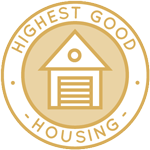 One Community is creating a more sustainable world through Highest Good housing that is artistic and beautiful, more affordable, more space efficient, lasts longer, DIY buildable, and constructed with healthy and sustainable materials:
One Community is creating a more sustainable world through Highest Good housing that is artistic and beautiful, more affordable, more space efficient, lasts longer, DIY buildable, and constructed with healthy and sustainable materials:
- Learn about: Our Upcoming Crowdfunding Campaign
- Learn about the different village models: 7 Sustainable Village Models
- Visit the open source portals for the first two: Earthbag Village OS Hub | Straw Bale Village OS Hub
This week the core team finished reviewing the latest Murphy bed Assembly Instructions export to help us as we’re creating a more sustainable world. We added comments with suggestions for the Murphy bed wall and back storage unit and provided additional images for document updates.We’re Creating a More Sustainable World with our commitment to a better living quality for all people.
Daniela Andrea Parada (Civil Engineering Student) completed her 33rd week helping with the Sustainable Roadways, Walkways, and Landscaping tutorial development. This week Daniela started by reviewing all new comments. To address these comments she researched what streets for the site plan would be necessary to have a drainage system. In doing so she reviewed the plans for the drainage system for Earthbag Village and the parking lot. She found a design plan and implemented it into the site plan.
Daniela provided an image of all the main intersections where there would need to be a drainage system. She then added final calculations and comments to the Initial Roadways Costs and Initial Maintenance Costs tabs and continued writing the section for flexible pavement design and completed the section for flexible pavement rehabilitation.We’re Creating a More Sustainable World with our commitment to a better living quality for all people. Pictures below are related to this work.
Diwei Zhang (Mechanical Engineer) completed his 14th week of work, now focused on 3D modeling and analysis review for the Net-zero Bathroom component of the Earthbag Village. This week Diwei determined the layout of the rainwater harvesting system after discussing it with management. Rainwater is collected from the rooftops of the net-zero bathroom, the shower room, and the tropic atrium. Only the rooftop rainwater is used for potable water usage after treatment. For 50 occupants, the net-zero bathroom requires a 1031-gallon water storage capacity to supply yearly faucet uses. A singular redundant 1600-gallon water tank placed under the shower room is applied.
The collected rainwater is treated with filtration and disinfection first and then pumped to the barrels in the net-zero bathroom. The layout of the rainwater harvesting system, pumps, filtration, and disinfection are now 3D modeled. We’re Creating a More Sustainable World with our commitment to a better living quality for all people. Pictures below show some of this work.
Ming Weng (MS Geography & Environmental Engineering) completed his 13th week helping with the Best Small and Large-scale Community Options for Sustainable Processing and Reuse of Non-recyclables research, report, and tutorial. This week, Ming checked waste-to-energy solutions other than pyrolysis based on type of waste and at small scales. Research papers were read to get an idea how flexible the plant can be made to make the solution economically feasible just like the pyrolysis example. The rest of time was spent on responding to comments and reviewing Kivia’s work to get comments to connect different sections of the report. We’re Creating a More Sustainable World with our commitment. Pictures below show some of this work-in-progress.
Lam (Dave) T. Nguyen (Mechanical Engineer) completed his 10th week of work. This week, Dave finished double checking the energy demand of the Straw Bale Village. After that, he created pie charts to compare energy drawn from each area and from each type of item. Based on those pie charts and tables, he analyzed data by comparing to US daily energy consumption and validated data by coming up with some adjustment ideas. We’re Creating a More Sustainable World with our commitment to a better living quality for all people. Pictures below are related to this work.
DUPLICABLE CITY CENTER PROGRESS
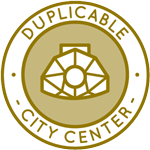 One Community is creating a more sustainable world through a Duplicable and Sustainable City Center that is LEED Platinum certified/Sustainable, can feed 200 people at a time, provide laundry for over 300 people, is beautiful, spacious, and saves resources, money, and space:
One Community is creating a more sustainable world through a Duplicable and Sustainable City Center that is LEED Platinum certified/Sustainable, can feed 200 people at a time, provide laundry for over 300 people, is beautiful, spacious, and saves resources, money, and space:
- Learn about this building and it’s function: Duplicable City Center Open Source Hub
This week the core team reviewed the City Center Hub Connector final report, added comments to improve the document, and responded to added content. We also reached out to Dave on his progress with double checking energy demand estimates and discussed next steps and Raj and Prathik about their progress and remaining work as they wrap up their volunteer engagement. We’re Creating a More Sustainable World with our commitment to a better living quality for all people. See pictures below for the work.
Luis Manuel Dominguez (Research Engineer) completed his 50th week helping with research related to the City Center Eco-spa designs. This week Luis continued his development of the website narrative. As the design process is mostly complete, his focus now is implementing and reformatting the existing research into a cohesive and presentable format. He continued his efforts this week in doing so by standardizing the table formats and developing some other key sections. We’re Creating a More Sustainable World with our commitment to a better living quality. Pictures below are related to this work.
Venus Abdollahi (Architectural Designer) completed her 39th week helping finish the Duplicable City Center designs. This week Venus worked on elevations. She updated the South elevation according to the SketchUp model and changed the position of the vehicle entry and some columns to match the latest plans. She corrected sections C-C and C’C’ according to her supervisor’s feedback. We’re Creating a More Sustainable World with our commitment to a better living quality. See pictures below.
Huiya Yang (Volunteer Architectural Designer) completed her 36th week working on the Duplicable City Center architectural review and updates related to the structural code. This week Huiya finished modifying the D4 door from fully closed to half-open. She also modified D3’s frame height from 7′-8” to 6′-10′ and modeled D5 and changed its height from 8′ to 8′ 7 3/4” to align with the top line of the adjacent window. We’re Creating a More Sustainable World with our commitment to a better living quality for all people. Pictures of some of this work are below.
Yuxi Lu (Architectural Designer) completed her 34th week working on the Duplicable City Center architectural review and updates related to the structural code. This week Yuxi coordinated with the team on the D3 sliding door height to be in line with the general wall shape, and the D5 corner glass door to have the same clear opening as the adjacent window for better visual quality, verifying both doors can be designed to those heights. D7 entry door website link and image information was updated, and she reached out to the door company to verify we can get the custom product we want.We’re Creating a More Sustainable World with our commitment to a better living quality.
Updated column information from CAD was also imported and verified with the SkethUp model to ensure accuracy. Pictures of some of this work are below.
Kamil Gajownik (Industrial/Product Designer) completed his 8th week of work on the Duplicable City Center dormer window designs and assembly instructions. Working towards assembly instructions, he fixed minor errors and details to ensure the design can be constructed. He learned how to use the split feature in solidworks to easily isolate each part and then turn it into a 2D drawing with specifications so it can easily be built. Kamil will continue to do this for the entire design and then make assembly instructions. We’re Creating a More Sustainable World with our commitment to a better living quality for all people. Pictures below are related to this work.
Yujue Wang (Architectural Designer) completed her 6th week working on the interior design for the Duplicable City Center rental rooms. This week, Yujue continued development by updating the window and sofa, designing the ceiling lights, and updating renderings. She also continued to work on cost analysis and presentation documents. In terms of room design, she updated the window model in SketchUp and updated the sofa to one that can be turned into a bed. Yujue also added a themed table lamp and garbage cans in the room. We’re Creating a More Sustainable World with our commitment to a better living quality for all people. See below for pictures related to this work.
Jessica Santos (Architect) completed her 3rd week working on the interior design for the Duplicable City Center rental rooms. This week Jessica kept working with Interior Design Cost Analysis and found some items that she thought would be good to add or switch in the project, so she worked doing that in parallel with the 3D model, updating these items. She also started the configuration to render the images, lighting the room. We’re Creating a More Sustainable World with our commitment to a better living quality for all people. See below for some pictures of this work.
Gabriela Vilela S. C. Diniz (Architect and Urban Planner) also completed her 3rd week working on the interior design for the Duplicable City Center rental rooms. This week Gabriela made a diversity of requested changes to the design of the “Fairy Garden Room”, most related to the maintenance of the room and for the safety of children. She also updated her City Center Interior Design Cost Analysis table excluding the items she took off from the layout and added the new ones. We’re Creating a More Sustainable World with our commitment to a better living quality. Pictures below are related to this work.
HIGHEST GOOD FOOD PROGRESS
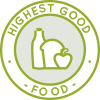 One Community is creating a more sustainable world through Highest Good food that is more diverse, more nutritious, locally grown and sustainable, and part of our open source botanical garden model to support and share bio-diversity:
One Community is creating a more sustainable world through Highest Good food that is more diverse, more nutritious, locally grown and sustainable, and part of our open source botanical garden model to support and share bio-diversity:
- Learn about the structures: Hoop House Hub | Aquapini & Walipini Open Source Hub
- See what we’ll be growing: Gardens & Hoop Houses | Large-scale Structures | Food Forest | TA
This week the core team completed another detailed review of the latest 3-day menu blocks for the Transition Food Self-sufficiency Plan. We reviewed the 3-Day Menu Block Docs through page 26. We focused on the food selections and their appropriateness for the particular meal, suggesting specific oils (olive, avocado, and sesame) over general vegetable oils, minimizing salt in the recipes and having it available on the side for those desiring more, adding various ingredients such as buckwheat and cornmeal flours, honey substituted for sugar, nutritional yeast for a healthier and flavorful condiment, tempeh in conjunction with tofu for enhanced protein, etc. We’re Creating a More Sustainable World for better living quality.
Another team member reviewed the first team member’s comments, made their own, and updated the design criteria to improve the process and help provide detailed review guidance for another new team member that will be assist with data entry.
Yinka Omole (Recipe Reviewer and Data Entry Assistant) also joined the team and completed her first week helping with the Transition Food Self-sufficiency Plan and related menu and meal plan recipe review and data entry. This week Yinka reviewed the recipes and read through them and made grammatical corrections to some. Then, she started entering the recipes into the Transition Kitchen Recipe Build Out (Outline) spreadsheet on Google Sheets. Lastly, Yinka entered 3 day Fresh Week Menu A, 3 Day Fresh Week Menu B, and she started entering recipes for 3 Day Fresh Week C. We’re Creating a More Sustainable World with our commitment to a better living quality for all people. Below are some images related to this work.
HIGHEST GOOD EDUCATION PROGRESS
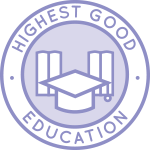 One Community is creating a more sustainable world through Highest Good education that is for all ages, applicable in any environment, adaptable to individual needs, far exceeds traditional education standards, and more fun for both the teachers and the students. This component of One Community is about 95% complete with only the Open Source School Licensing and Ultimate Classroom construction and assembly details remaining to be finished. We’re Creating a More Sustainable World with our commitment to a better living quality.
One Community is creating a more sustainable world through Highest Good education that is for all ages, applicable in any environment, adaptable to individual needs, far exceeds traditional education standards, and more fun for both the teachers and the students. This component of One Community is about 95% complete with only the Open Source School Licensing and Ultimate Classroom construction and assembly details remaining to be finished. We’re Creating a More Sustainable World with our commitment to a better living quality.
With over 8 years of work invested in the process, the sections below are all complete until we move onto the property and continue the development and open sourcing process with teachers and students – a development process that is built directly into the structure of the education program and everything else we’re creating too:
- Program Overview: Education Open Source Hub
- How the components work together: How to use the Education for Life Program
- Lesson Plans for Life – Lesson Plans How-to
- Foundations of Outstanding Leaders, Teachers, and Communicators
- Curriculum for Life
- Teaching Strategies for Life
- Learning Tools and Toys for Life
- Evaluation and Evolution
This week, Adolph Karubanga (Certified Project Manager & Civil/Structural Engineer) completed his 14th week helping with the Ultimate Classroom structural engineering. During the week, Adolph finalized the AutoCAD drawings of the roof structure. He then began detailed analysis and design of the remaining structural elements (beams, columns and foundations) including structural idealization. In order to maintain the dimensions, Adolph exported the original AutoCAD file (saved as DxF) into Tekla structural designer, and is in the process of finalizing the 3D layout of the entire plan. We’re Creating a More Sustainable World with our commitment to a better living quality for all people. Pictures below are related to this work.
HIGHEST GOOD SOCIETY PROGRESS
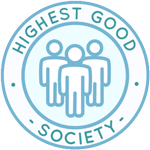 One Community is creating a more sustainable world through a Highest Good society approach to living that is founded on fulfilled living, the study of meeting human needs, Community, and making a difference in the world:
One Community is creating a more sustainable world through a Highest Good society approach to living that is founded on fulfilled living, the study of meeting human needs, Community, and making a difference in the world:
- Read the Highest Good society overview: Highest Good Society
- Learn about the model for fulfilled living and sharing: A Day in the Life
- Learn about the 4 economic models: RBE | For-profit | Non-profit | Entrepreneurship
- Learn about our open source community collaboration and management software: The Highest Good Network
This week the core team completed 29 hours managing One Community volunteer-work review not included above, emails, social media accounts, web development, new bug identification and bug fix integration for the Highest Good Network software, and interviewing and getting set up new volunteer team members. We’re Creating a More Sustainable World with our commitment to a better living quality for all people. Pictures below show some of this.
Phu Nguyen (Software Developer) completed his 13th week helping with the Highest Good Network software. This week, Phu finished fixing the tangible hours front end + backend. The tangible hours are now able to be modified and saved by an admin. Phu also started working on the bug: Log on time shows up on its own. We’re Creating a More Sustainable World with our commitment to a better living quality for all people. The pictures below relate to this work.
Yiyun Tan (Software Engineer) completed her 12th week helping with the Highest Good Network software. This week Yiyun put most of her time into creating the ability for users to log time on assigned tasks. Currently Yiyun finished the frontend/UI changes and tasks have been added to the TimeEntryForm when users are logging tangible/intangible time. Tasks have also been added to the TimeLog card “Filter Entries by Project and Task”. We’re Creating a More Sustainable World with our commitment to a better living quality for all people. Pictures of some of this work are below.
Ron Magpantay (Software Engineer) completed his 11th week helping with the Highest Good Network software. This week, Ron worked on providing support for pull requests that involved performance changes on the front end and which helped to correct data inputs. In development, Ron worked to correct an issue affecting admin accounts when entering intangible time entries and is currently working on fixing a small kink with the fix. In addition, he provided a fix for a CSS display issue in user profiles. We’re Creating a More Sustainable World with our commitment to a better living quality for all people. See pictures below for some of this work.
Eiki Kan (Software Engineer) completed his 7th week helping with the Highest Good Network software. Eiki reviewed weekly summaries, led the biweekly team meeting, and advanced the task notification feature. He pair-programmed with Vera, enabling task notifications on edits, refactored code for adding tasks using a Redux thunk, and set up the modal for the red bell notification. See pictures below for some of this work.
Yongtae “Yogi” Park (Graphic Designer, UX Designer) completed his 5th week helping create the social media images for these weekly progress update blogs. This week, Yongtae created several images using assets from Unsplash, Pixabay, and Master Graphics. He has experimented with overlaying images with different lights and applying gradations on them so that the main text is more visible. He has struggled to find some new images however because the image samples from those resources are limited and start to become repetitive. He will look for other image resources that are free and copyright safe. We’re Creating a More Sustainable World for better living quality. Below you can see the images he created.
Vera Timokhina (Software Engineer) completed her 4th week helping with the Highest Good Network software. This week Vera was working with Eiki. They made it so that when you click on the red bell, a modal opens, in which the difference between the old and edited state of the task will be displayed. Also, now users can edit tasks and see a red bell when there are some updates. Additionally, Vera fixed the bug that appears when a user edits a time entry and changes the date so the time entry must move to another week to help us as we’re creating a more sustainable world.
The wrong behavior was that the edited time entry was moved to another week, but did not disappear from the edited week’s entry list until the page was refreshed. Now it works without refreshing. Vera also started to work on the reports pages header and refactored the project report component, so now it uses hooks. We’re Creating a More Sustainable World for better living quality. See pictures below for some of this work.
Jason Kim (Software Engineer) completed his 3rd week helping with the Highest Good Network software. This week Jason primarily worked on the Progress Bar component as we’re ceating a more sustainable world with our commitment to a better living quality that he is tasked with. He finished all the functionality related to the component and submitted a PR request for review. Work was reviewed by Yiyun and he then worked to resolve the issues that had been pointed out. Specifically, point 1 on the request, a text alignment issue. We’re Creating a More Sustainable World with our commitment to a better living quality for all people. See pictures below for some of this work.
WHAT ONE COMMUNITY IS CREATING
One Community is creating a place to grow together and change the world together. We’re creating a more sustainable world to grow with each other live in integrity with each other and the planet as we strive to be the greatest versions of ourselves. We do this because we’re creating a more sustainable world with our commitment to a better living quality for all people by harmoniously respecting each other, nature, and the rest of our one shared planet.
Our goal is to demonstrate what we feel is the most sustainable, healthy, and fun environment we can create and we’re creating a more sustainable world with our commitment to a better living quality for all people. A place based on compassion, kindness, and collaboration. This replicable community will serve as an example for what is possible. We’re Creating a More Sustainable World with our commitment to a better living quality for all people.
Throughout our design process we are open sourcing and free-sharing everything needed for construction and replication we’re creating a more sustainable world with our commitment to a better living quality for all people. This includes what we call “Highest Good” approaches to food, energy, housing, education, for-profit and non-profit economics design, social architecture, fulfilled living, stewardship practices and more. We’re creating a more sustainable world with these resources for implementation as individual components or complete developments called teacher/demonstration hubs. These hubs will help launch additional hubs as awareness and knowledge grow. We’re creating a more sustainable world with our commitment to a better living quality for all people.
AND WE PRODUCED THIS WEEKLY UPDATES BLOG – CLICK HERE TO SUBSCRIBE
FOLLOW ONE COMMUNITY’S PROGRESS (click icons for our pages)
INVESTOR PAGES
GET INVOLVED
DONATE | WAYS ANYONE CAN HELP | MEMBERSHIP
CLICK HERE FOR ALL PAST UPDATES
 One Community
One Community